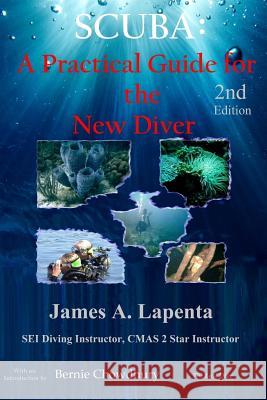Scuba: A Practical Guide for the New Diver » książka
Scuba: A Practical Guide for the New Diver
ISBN-13: 9781494900250 / Angielski / Miękka / 2014 / 214 str.
SCUBA is a fun, relaxing, educational, interesting, and -- if approached properly -- safe activity, it is nonetheless a sport that has risks. SCUBA diving is in fact an extreme sport that can injure or even kill very quickly, and in some very nasty ways. What we are doing is entering an alien environment that is normally hostile to human life. We cannot breathe in water without some kind of mechanical assistance. These are facts and the details should be covered in every Open Water (OW) class. All too often in today's society, however, people do not want to take the time to properly prepare and get the education to safely take on new tasks. Some agencies appear to have responded to this by developing training programs that turn out high numbers of certified divers in shorter time frames, necessitating the reduction of time spent on what I consider to be some necessary basic skills. While this has resulted in great numbers of new divers entering the water, it has not resulted in many of those divers staying in the water. New divers are often given just enough training to enable them to dive in the most benign conditions under close supervision. Even then, there are still those who find out their initial training was just not adequate. It is at this point that they either make the decision to get more training or they leave the sport. The latter happens all too often. The former, when it does happen, does not always occur for the right reasons. Students should return to training to expand their diving and learn new skills; they should not have to return for new training just to be able to enjoy the sport safely. To require students to come back for basic information is something I find very troubling, and in some cases, has actually cost divers their lives. A lack of rescue instruction has resulted in a number of diver deaths when buddies did not know how to drop weights, support a diver at the surface, or even stay in contact with their buddy. This is another area frequently talked about, but all too often not actually put into practice. The concept of always diving with a buddy and just what that means in the "real world" is often given too little attention. Unfortunately, it is impossible to foresee every conceivable situation that can arise, but there are many basic issues that can be covered. The following chapters will hopefully address much of what is being overlooked or delayed in many programs as they exist today. It is my hope that this information also finds its way into the hands of those who have not yet begun the training process. I have included a chapter on how to select an instructor based on the quality of instruction and the content of the course. In some cases, these classes may cost more than the less comprehensive courses also available, but usually they do not. In fact, when you consider the additional skills and education gained from a more comprehensive course, you will find that you have received much more value for each dollar spent. In addition, you gain priceless benefits in the form of greater confidence, enjoyment, skills, and -- most importantly -- safety. Enjoy and dive safe
Zawartość książki może nie spełniać oczekiwań – reklamacje nie obejmują treści, która mogła nie być redakcyjnie ani merytorycznie opracowana.











